#Aleksandr Yakovlev
Explore tagged Tumblr posts
Text

#movies#polls#ivan vasilyevich changes his profession#70s movies#leonid gaidai#aleksandr demyanenko#yuriy yakovlev#leonid kuravlyov#requested#have you seen this movie poll
88 notes
·
View notes
Text

Femme M’Gogo, Dodoma (1925) | Alexandre Jacovleff (1887-1938)
#alexandre jacovleff#alexander yakovlev#aleksandr jacovleff#neoclassicism#russian art#александр евгеньевич яковлев
2 notes
·
View notes
Text

Aleksandr Evgenevich Yakovlev (1887-1938), Shu Fang
8 notes
·
View notes
Text
⬇️ Tag drop ⬇️
Actors & Actresses
al st john
alan tudyk
aleksandr demyanenko
aleksandr trofimov
aleksei kuznetsov
alexandra yakovleva
alice lake
alice mann
alisa freindlich
alla demidova
anastasiya vertinskaya
anita page
andy whitfield
anne cornwall
barbara brylska
bartine burkett
ben barns
beulah booker
brown eyes
bruno ganz
buster keaton
conrad veidt
dmitri zolotukhin
dorothy christy
dorothy sebastian
edward norton
ekaterina savinova
eleanor keaton
evgeniy leonov
heath ledger
igor starygin
inna churikova
innokenty smoktunovsky
irene purcell
irina alfyorova
ivan pyryev
jack black
jason isaacs
joe keaton
joe roberts
karin boyd
kate beckinsale
kate price
kathleen myers
kathryn mcguire
klara luchko
klaus maria brandauer
larisa guzeeva
linda hamilton
liv tyler
luciena ovchinnikova
luke the dog
lyudmila gurchenko
marceline day
margaret leahy
margarita terekhova
marina dyuzheva
marion byron
marion mack
mikhail boyarsky
mikhail kozakov
mona maris
nadezhda rumyantseva
naomi watts
natalie talmadge
natalya krachkovskaya
natalya seleznyova
natalya varley
nora arnezeder
norman reedus
oleg menshikov
oleg tabakov
orson welles
paul bettany
paulette dubost
peter falk
phyllis barry
phyllis haver
renee adoree
rosalind byrne
roscoe arbuckle
ruth dwyer
ruth selwyn
sally eilers
sally o'neil
snitz edwards
sofiko chiaureli
sofiya pilyavskaya
sybil seely
tatyana lyutaeva
thelma todd
tilda swinton
tom hiddleston
valentin smirnitsky
veniamin smekhov
virginia fox
whitney houston
yanina zheymo
yelena ukrashchyonok
yuriy yakovlev
Characters
anne of austria
aramis
assol
athos
bagheera
baloo
buckingham
cardinal richelieu
constance bonacieux
d'artagnan
daryl dixon
edward rochester
geoffrey chaucer
grigori rasputin
king louis xiii
laura lyons
milady de winter
mowgli
peter the great
porthos
raksha
sarah connor
shere khan
van helsing
Origin
american cinema
american tv show
austrian cinema
barbie movies
behind the scenes
czech cinema
french cinema
german cinema
hungarian cinema
other peoplez edits
russian animation
russian cinema
silent cinema
soviet animation
soviet cinema
soyuzmultfilm
Directors
adolf trotz
aleksandr ptushko
aleksandr sery
alexander rowe
aleksey korenev
alla surikova
andrei tarkovsky
brian helgeland
don bluth
edward sedgwick
eldar ryazanov
gary goldman
georgi yungvald-khilkevich
gleb panfilov
igor maslennikov
istván szabó
james cameron
jim jarmusch
kirill mikhanovsky
leonid gaidai
mikhail shapiro
mikhail tsekhanovsky
nadezhda kosheverova
owen hurley
peter jackson
robert stevenson
sergey gerasimov
stephen sommers
svetlana druzhinina
vadim medzhibovskiy
vera tsekhanovskaya
vladimir menshov
wim wenders
Time Periods
1910s
1920s
1930s
1940s
1950s
1960s
1970s
1980s
1990s
2000s
2010s
Films & Shows
a cruel romance
a knight's tale
a man from boulevard des capucines
adventures of mowgli
anastasia
at the beginning of glorious days
back stage
barbie as rapunzel
barbie as the princess & the pauper
barbie in the 12 dancing princesses
barbie in the nutcracker
barbie of swan lake
battling butler
carnival night
cinderella 1947
clever dog sonya
college
coney island
convict 13
cops
d'artagnan and the three musketeers
dämen der frauen
daydreams
der himmel über berlin
doughboys
for family reasons
free and easy
gentlemen of fortune
give me liberty
go west
good night nurse!
hard luck
high sign
his wedding night
ivan vasilievich changes occupation
jane eyre 1943
le roi des champs-élysées
look for a woman
love and doves
maugli
midshipmen onwards!
mirror
moonshine
morozko
my wife's relations
musketeers twenty years after
neigbors
oh doctor!
one week
only lovers left alive
operation y and shurik's other adventures
our hospitality
out west
parlor bedroom and bath
pokrov gates
prince of foxes
prisoner of the caucasus or shurik's new adventures
scarlet sails
seven chances
sherlock jr
sidewalks of new york
spartacus: blood and sand
spartacus: gods of the arena
speak easily
spite marriage
steamboat bill jr
sweet november
terminator 2: judgement day
the adventures of sherlock holmes and doctor watson
the balloonatic
the beginning
the bell boy
the blacksmith
the boat
the bodyguard
the butcher boy
the cameraman
the cook
the electric house
the fellowhip of the ring
the frozen north
the garage
the general
the girls
the goat
the haunted house
the hayseed
the holiday
the hound of the baskervilles
the incredible hulk
the irony of fate or enjoy your bath!
the kuban cossacks
the lord of the rings
the love nest
the navigator
the painted veil
the paleface
the passionate plumber
the rough house
the saphead
the scarecrow
the walking dead
the wild swans
the words
this is your life
three ages
van helsing
watch out for the automobile
what - no beer?
wings of desire
young russia
7 notes
·
View notes
Text
2024 olympics Kazakhstan roster
Archery
Alexandr Yeremenko (Astana)
Dauletkeldi Zhangbyrbay (Almaty)
Ilfat Abdullin (Eskeldi Awdin)
Athletics
David Yefremov (Karaganda)
Olga Safronov (Karaganda)
Daisy Jepkemei (Astana)
Norah Jeruto-Tanui (Astana)
Zhanna Mamazhanova (Semey)
Nadezhda Dubovitskaya (Semey)
Yelizaveta Matveyeva (Oskemen)
Badminton
Dmitriy Panarin (Kostanay)
Boxing
Saken Bibossinov (Turkistan)
Makhmud Sabrykhan (Shymkent)
Mukhammedsabyr Bazarbayuly-Uulu (Almaty)
Aslanbek Shymbergenov (Taraz)
Nurbek Oralbay-Rahatuli (Astana)
Aibek Oralbay-Rahatuli (Astana)
Kamshybek Kunkabayev (Kyzylorda)
Nazym Qzaibai (Zhetigen)
Karina Ibragimova (Koksetau)
Valentina Khalzova (Astana)
Breakdancing
Amir Zakirov (Petropavl)
Canoeing
Bekarys Ramatulla (Astana)
Sergey Yemelyanov (Jezkazgan)
Timur Khaidarov (Almaty)
Sergii Tokarnytskyi (Astana)
Mariya Brovkova (Alga)
Rufina Iskakova (Almaty)
Climbing
Amir Maimuratov (Astana)
Cycling
Andrey Chugay (Kokshetau)
Alexey Lutsenko (Petropavl)
Yevgeniy Fedorov (Aktobe)
Fencing
Vadim Sharlaimov (Oskemen)
Elmir Alimzhanov (Almaty)
Ruslan Kurbanov (Oskemen)
Aigerim Sarybay (Almaty)
Gymnastics
Milad Karimi (Almaty)
Nariman Kurbanov (Almaty)
Danil Mussabayev (Karaganda)
Elzhana Taniyeva (Shymkent)
Judo
Daniyar Shamshayev (Astana)
Nurlykhan Sharkhan (Kyzlorda)
Yeldos Smetov (Taraz)
Gusman Kyrgyzbayev (Almaty)
Abylaikhan Zhubanazar (Kazaly)
Kamila Berlikash (Almaty)
Abiba Abuzhakynova (Almaty)
Esmigul Kuyulova (Tashkent, Uzbekistan)
Pentathlon
Georgiy Boroda-Dudochkin (Almaty)
Yelena Potapenko (Almaty)
Rowing
Vladislav Yakovlev (Temirtau)
Shooting
Konstantin Malinovskiy (Astana)
Nikita Chiryukin (Almaty)
Eduard Yechshenko (Almaty)
Islam Satpayev (Almaty)
Arina Altukhova (Almaty)
Irina Yunusmetova (Astana)
Alexandra Le (Almaty)
Mariya Dmitriyenko (Shymkent)
Assem Orynbay (Yntymak)
Swimming
Adilbek Mussin (Astana)
Xeniya Ignatova (Saran)
Table tennis
Kirill Gerasimenko (Astana)
Taekwondo
Samirkhon Ababakirov (Astana)
Batyrkhan Toleugali (Almaty)
Tennis
Alexander Bublik (Monte Carlo, Monaco)
Alexander Shevchenko; Jr. (Vienna, Austria)
Aleksandr Nedovyesov (Almaty)
Elena Rybakina (Moscow, Russia)
Yulia Putintseva (Boca Raton, Florida)
Triathlon
Ekaterina Shabalina (Astana)
Wrestling
Meirambek Kartbay (Aktobe)
Azamat Dauletbekov (Astana)
Alisher Yergali (Taraz)
Yusup Batirmurzaev (Aktobe)
Aidos Sultangali (Almaty)
Demeu Zhadrayev (Usharal)
Nursultan Tursynov (Semipalatinsk)
Alimkhan Syzdykov (Astana)
#Sports#National Teams#Kazakhstan#Celebrities#Races#Fights#Boxing#Boats#Uzbekistan#Tennis#Monaco#Austria#Russia#Florida
0 notes
Photo
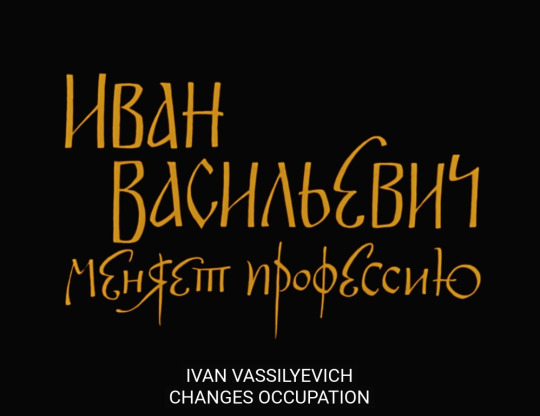

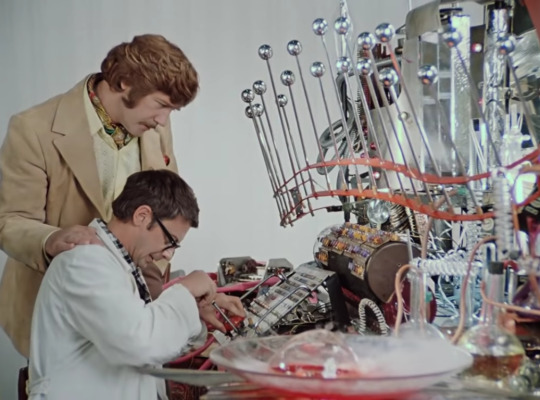


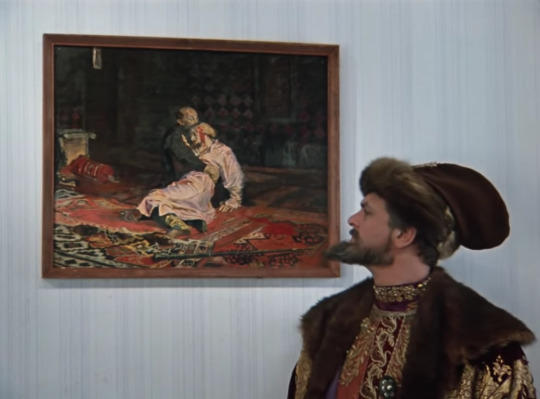

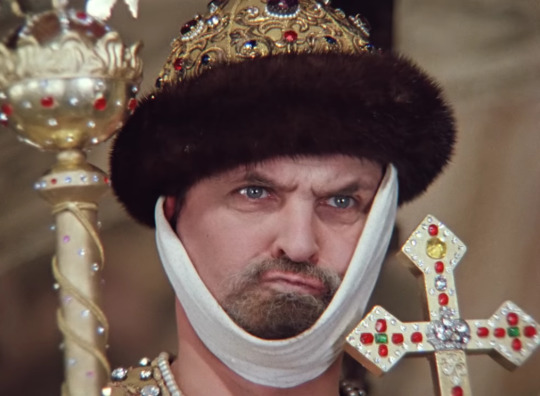
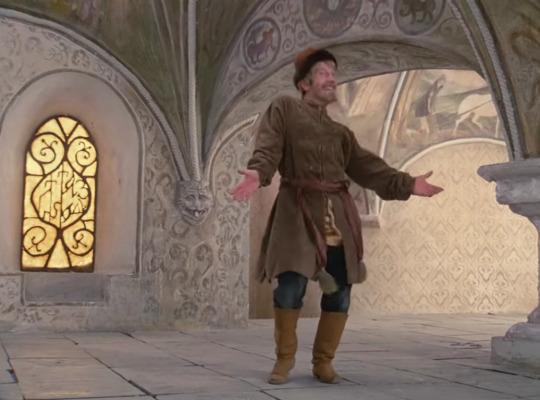
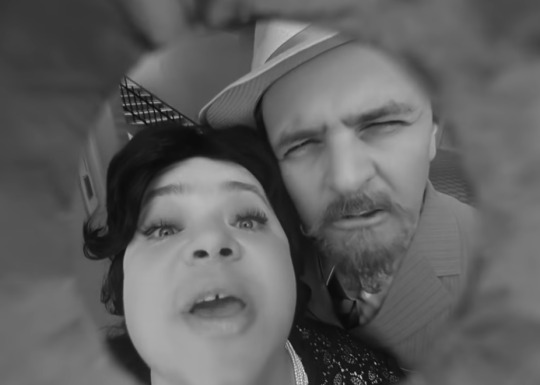
Ivan Vasilyevich Changes His Profession (1973)
#ivan vasilyevich changes his profession#leonid gayday#aleksandr demyanenko#yuriy yakovlev#leonid kuravlyov#mikhail pugovkin#musical#talks
37 notes
·
View notes
Photo

Я обязательно выживу...
#russia u21#euro u21 2013#still bad at recognizing faces#sergey bryzgalov#pavel yakovlev#sergey petrov#nikolay pisarev#oleg shatov#aleksandr zotov#denis cheryshev#andrey panyukov#maksim grigoryev#maksim belyayev#stanislav kritsyuk#aleksandr filtsov#nikolay zabolotny#taras burlak#roman yemelyanov#aleksey nikitin#yuri kirillov#nikita chicherin#georgi shchennikov#maksim kanunnikov#ibragim tsallagov#shota bibilov#ivan knyazev#dmitri kayumov
3 notes
·
View notes
Photo


YAKOVLEV Aleksandr Evgenievich (1887-1938)
Sara, Sara race, Ouandja, 1925,
Banda accroupi, Ialinga (Oubangui-Chari) Squatting Banda, Ialinga (Oubangui-Chari)
Russian Africanism
#yakovlev#aleksandr#evgenievich#russian#art history#1925#africanism#ouandja#tracker#squatting#banda#male figures in art#men of color
23 notes
·
View notes
Text
Photograph by Marty Sohl / Met Opera
Photograph by Marty Sohl / Met Opera
Photograph by Marty Sohl / Met Opera
El 22 de desembre de 1965 Montserrat Caballé debutava al vell MET cantant la Marguerite del Faust de Gounod. Rudolf Bing va voler que l’esclat operístic que suposava la irrupció de la soprano catalana en el panorama internacional tingués el seu debut en el vell teatre que estava a punt d’enderrocar-se i a corre-cuita va fer un forat a la programació per introduir-la. Ençà d’aquell dia memorable fins el 10 d’octubre de 1985 que s’acomiadà de la sala del Lincoln Center amb Tosca al costat de Pavarotti i MacNeil, la soprano catalana va deixar un llegat de nits memorables interpretant Leonora a Il Trovatore, Desdemona a Otello, Violetta a La Traviata, Luisa Miller, Liu a Turandot, Amelia a un Ballo in Maschera, Elisabetta a Don Carlo, Norma, Elena a I Vespri Siciliani, Mimi a La Bohéme, Manon a Manon Lescaut, Aida, Ariadne auf Naxos, Adriana Lecouvreur i Tosca, a banda de la seva participació en gales i concerts també en el mateix teatre.
D’aquesta historia gloriosa al llarg de quasi 20 anys, els millors de la seva carrera, ahir abans de començar la representació d’Aida, òpera que ella havia interpretat al costat de Plácido Domingo, Marilyn Horne, Mignon Dunn, Robert nagy, Louis Quilico o Cornell MacNeil en dues representacions sota la direcció de James Levine a l’any 1976 no se’n va dir res. Cap menció i hi va haver ocasió quan el Sr Gelb va presentar la temporada entrevistat per la soprano Isabel Leonard, tot i que allò que mereixia Caballé hagués estat que el director general de la casa hagués sortit davant de la cortina una vegada el director musical hagués pujat al podi orquestral, per adresar-se al públic i a tot el món que veia la representació als cinemes, i fer-li un merescut homenatge a qui els va donar tant. Estic segur que amb James Levine al podi no hagués passat.
Per sort Roberto Alagna que va ser entrevistat al segon entreacte, juntament amb Elina Garanca per promocionar la propera transmissió als cinemes, Samson et Dalila, que ells protagonitzen i va ser aleshores quan va aprofitar l’ocasió i abans d’acabar l’entrevista va tenir un record per Caballé i va mostrar la sensibilitat que els va mancar a Gelb, Netrebko, Rachvelishvili, Antonenko, Leonard que els entrevistava, i els dos empleats del MET que també van intervenir durant el segon entreacte, aquests amb l’afegitó que van fer un repàs de les dives que van cantar Aida al teatre, no van tenir. Tots ells sense excepció tenint motius suficients per dedicar-li unes paraules van oblidar a Caballé, i només la generositat i la bonhomia del tenor francès va reparar un error vergonyant per una institució que sempre s’havia caracteritzat per l’estima als cantants. El tenor els va donar una lliçó que per sort ha quedat enregistrada. La sala 4 del Cinemes Comèdia de Barcelona va aplaudir de manera espontània i alliberadora el gest d’Alagna. Bravo per a ell i un clatellot per a tota la resta.
Ahir tornava la temporada del MET als cinemes amb el primer dels 10 títols programats i ho feia amb la popular i difícil Aida, en la coneguda, luxosa i hollywodiana producció de Sonja Frisell sota la direcció musical de Nicola Luisotti i amb un repartiment que incloïa a Anna Netrebko, Aleksandrs Antonenko, Anita Rachvelishvili, Quinn Kelsey i Dmitry Beloselskiy en els cinc rols principals.
Em va agradar molt la direcció de Luisiotti, tot i que una mica arbitrària en d’utilització de tempos més aviats allargassats, però traient amb la complicitat de l’excel·lent orquestra del MET unes sonoritats de riquesa expressiva i descriptiva, sobretot en els dos darrers actes, la veritable perla d’aquesta òpera. Acompanyava als cantants però també tenia coses a dir en els moment on Verdi atorga un protagonisme orquestral en l’acte del Nil, preciós ambient de nocturnitat i misteri, o en tota l’escena del judici, en tots els aspectes el gran moment de tota la representació.
L’Orquestra del MET mostra una vegada més la qualitat i la categoria amb un so sumptuós i uns solistes de gran nivell. També el cor va mostrar un bon estat de forma, tot i que la disposició dels micròfons els va perjudicar en algun moment, on es destacaven les veus d’un grupet de sopranos sobre la resta. Res atribuïble a la formació coral i si a l’enginyer de so de la transmissió.
Vocalment la representació per a mi va tenir una clara triomfadora, la mezzosoprano Anita Rachvelishvili, que a partir d’un concepte bastant proper al belcantisme (molt en l’estil Simionato) va anar transformant la personalitat dramàtica d’Amneris fins obtenir un triomf sense discussió al final de la gran escena del judici quan anatemitza a Ramfis i els sacerdots. La veu sensual, poderosa i plena de matisos de la jove (28 de juny de 1984) mezzo georgiana es va apoderar de la representació perquè la seva interpretació era sincera, espontània i natural. La quasi perfecta dicció i el sentit que atorgava a cada paraula i frase donava versemblança a l’acció i l’homogeneïtat del registre, sense necessitat de forçar ni en la zona aguda, ni en la greu que flueix sense sons oberts o de pit, van fer la resta. Una interpretació de molta categoria.
Anna Netrebko va desplegar el seu poder vocal en total plenitud, però la soprano russa ja fa molt temps que s’ha encaparrat en desvirtuar la seva pròpia veu falsejant l’emissió i embrutant-la amb unes sonoritats que ella es deu pensar que així és més dramàtica. Res més lluny de les seves intencions perquè quan Netrebko brilla més és quan la veu flueix lliure i encara lluminosa de la zona central a l’agut, que quasi sempre és afinat i a vegades emès en un forte excessiu, que no és mai un crit tot i que a vegades ho sembla. Però quan vol demostrar el que no és, aleshores la seva interpretació no és ni natural, ni fresca, ni bonica. Enfosqueix la veu de manera absolutament innecessària i els resultats que pretén assolir van en detriment d’una línia que de mantenir-se en la vocalitat de lírica plena, que és el que realment és, serien infinitament millors. Ella no va tenir un record per a Caballé i jo en canvi la vaig recordar i enyorar molt en l’acte del Nil. Ves quines coses, oi?
Aleksandrs Antonenko no ho podia fer pitjor. Després d’un dels “Celeste Aida” més vergonyants que he escoltat mai, es va dedicar a destrossar la partitura, sense coneixement de l’estil, sense un domini tècnic de la veu, sense un fraseig acurat i amb una emissió estentòria que feria l’orella i la sensibilitat musical dels que l’escoltàvem amb resignació. No puc arribar entendre, no tan sols que li llencessin bravos, sinó que l’aplaudissin. Inadmissible.
Tampoc em va agradar, aquest gaire, Quinn Kelsey. El baríton nord-americà té al cap a Cornell MacNeil, i fa bé perquè pocs barítons han estat tan verdians com ell, però alguna cosa no ha acabat d’aprendre del seu col·lega i compatriota, perquè em va semblar que frasejava més que cantava, en uns estil verista que tant ha perjudicat l’estil belcantista i verda. Al seu favor cal dir que la dicció era molt clara i se li entenia tot el que deia, però no em va semblar apropiat al rol, potser un Scarpia, però no un Amonasro i menys un Germont, que és el proper que li sentirem. En fi, tot forma part d’aquesta manca de rigor que poc importa en un públic que confon massa sovint bou per bestia grossa.
Dmitry Beloselskiy va ser un Ramfis insuficient n la zona greu, la que l’hauria de distingir com a baix, per tant impossible quedar satisfet amb la seva prestació. En canvi el Rei de Ryan Speedo Green em va semblar molt més notori del que és habitualment.
Molt bé la sacerdotessa de Gabriella Reyes i correcte tirant a notable el missatger de l’esperançador i jove tenor Arseny Yakovlev.
La producció de Frisell cau en tots els tòpics possibles d’un Egipte tan fals com Hollywood ens ha fet creure. Jo pensaria que en l’època faraònica els grans temples on es situen la majoria d’accions dramàtiques de l’obra haurien de presentar un esplendor acabat d’estrenar, per dir-ho de manera senzilla, aleshores perquè les pedres i grans escultures mostren signes d’envelliment? És clar que les grans dinasties van durar molts anys i també tenien temps de deteriorar-se, però no tant com sembla fer entendre les magnífiques escenografies que ens proposa la producció de Frisell, obra de Gianni Quaranta, mentre que el vestuari de Dada Saligeri és un compendi del fons d’armari de la Metro-Goldwyn-Mayer. I el millor del cas és que els novaiorquesos encara aplaudeixen la transformació de l’escena entre el primer i el segon quadre del segon acte o l’entrada a escena d’un carro estirat per dos magnífics i inquiets cavalls Trigaran a fer un nova producció.
La intervenció del ballet la vaig tribar sobrera, per la poca inspiració coreogràfica i per l’execució encara menys inspiradora.
Aida és quasi tan difícil de representar com de cantar. És molt fàcil caure en el kitsch mems ranci intentant ser rigorós a la manera fantasiosa d’un Egipte inventat. Millor inspirar-se en el Faraó de Jerzy Kawalerowicz que no pas en Cecil B. DeMille sempre i quan no es vulgui situar a Wall Street, és clar.
Un inici que de no haver estat per l’atemptat d’Antonenko a la partitura i per la tristor que m’envaïa en veure que la gran Aida de Montserrat Caballé en un dels seus teatres fetitxe, potser m’hagués agradat més. Se’m va fer llarga, llarga, llarga i hagués volgut que la fatal pietra hagués sepultat la representació després de la contundent “Empia razza! Anatema su voi! La vendetta del ciel scenderà! Anatema su voi!”
AIDA Giuseppe Verdi–Antonio Ghislanzoni
Aida………………..Anna Netrebko Radamès……………..Aleksandrs Antonenko Amneris……………..Anita Rachvelishvili Amonasro…………….Quinn Kelsey Ramfis………………Dmitry Beloselskiy King………………..Ryan Speedo Green Messenger……………Arseny Yakovlev Priestess……………Gabriella Reyes Dance……………….Jennifer Cadden Dance……………….Bradley Shelver
Chorus and Orchester Metropolitan Opera House Direcció musical……………Nicola Luisotti
Direcció escènica…………..Sonja Frisell Escenografia…………Gianni Quaranta Disseny de vestuari……..Dada Saligeri Disseny de llums…….Gil Wechsler Coreografia………..Alexei Ratmansky
Medtropolitan Opera House, New York, 6 d’octubre de 2018.
MET 2018/2019: AIDA (NETREBKO-RACHVELISHVILI-ANTONENKO-KELSEY-BELOSELSKIY;FRISELL-LUISOTTI) El 22 de desembre de 1965 Montserrat Caballé debutava al vell MET cantant la Marguerite del Faust de Gounod.
#Aida#Aleksandr Antonenko#Anita Rachvelishvili#Anna Netrebko#Arseny Yakovlev#Chorus and Orchester Metropolitan Opera House#Dmitry Beloselskiy#Gabriella Reyes#Giuseppe Verdi#MET#Nicola Luisotti#Quinn Kelsey#Ryan Speedo Green#Sonja Frisell
1 note
·
View note
Photo








The Diamond Arm [1969] vs Ivan Vasilievich: Back to the Future [1973]
#soviet cinema#leonid gaidai#andrei mironov#the diamond arm#i van vasilievich back to the future#yuri yakovlev#aleksandr demyanenko#yuri nikulin#soviet*#mgif*#ivan*#arm*
275 notes
·
View notes
Note
did you know that wikipedia has 9 articles about different people named Alexander Yakovlev
Alexander Ivanovich Yakovlev, entomologist and painter
Alexander Stepanovich Yakovlev, writer
Alexandre Jacovleff, painter
Alexander Sergeyevich Yakovlev, aeronautical engineer and founder of the aircraft company Yakovlev Design Bureau
Alexander Yakovlev, Russian politician who was the driving force behind the glasnost and perestroika reform policies
Aleksandre Maksimovich Yakovlev, legal scholar
Alexander Yakovlev (diplomat)
Aleksandr Yakovlev (actor) (article only available in Russian)
Alexander Yakovlev (fighter)
I did not! Thank you for sharing
4 notes
·
View notes
Text
Vanya, 1961
We have to talk about Wayne.

[A black and white photor of Wayne Gretzy, with a sultry mullet, smiling at the camera.]
I did not want to talk about Wayne, here. But it’s like Wayne Gretzky has bodyslammed his way into my kitchen and been chatting all month.
If you google it, Wayne Gretzky’s family background comes up as Russian, Belarussian, Ukrainian, Polish, all of those or just ‘something suspiciously Russianish.’ (If I spell his name wrong somewhere it’s because 1) I can’t spell 2) I’m still dealing with how it would more properly be pronounced “Hretzky”.)
The region his grandparents left just before 1918 had been several countries that don’t exist anymore, and mostly a war zone. At home, they spoke Ukrainian. Wayne’s father Walter Gretzky grew up in Ontario, in the Ukrainian language, and in hockey, but when he tried out for the NHL in ’54 he was told that he “just wasn’t big enough” for Canada’s game at 5’9”. That same year Coach Tarasov had brought his Soviet team to their very first World Championships. They won an unexpected gold, and they were…undersized.
By the ’60s, Valeri Kharlamov hit the world stage…at a glorious 5’8”. (He wasn’t even the top scorer that first year—that went to Anatoli Firsov, also 5’9”.) Walter’s son was weaving between tin cans and bleach bottles in the backyard, while Coach Tarasov taught his skaters to circle cones.
Krutov, Larionov, and Makarov stood 5’9”, 5’9” and 5’8” all together. None of them would have been favorites to make the NHL if they had been born in Canada in the ’50s (or today). Wayne had to go and be a 6 foot freak, but he grew up playing his dad’s short hockey. Swooping ballet-and-chess hockey. You know, Soviet hockey.
"The Soviets and Gretzky changed the NHL game,” says Ken Dryden. "Gretzky, the kid from Brantford with the Belarusian name, was the acceptable face of Soviet hockey. No Canadian kid wanted to play like Makarov or Larionov. They all wanted to play like Gretzky."
Before the ’81 final Coach Tikhonov hammered on Slava’s shoulder and told the Green Unit, “‘You’re going to play all the time against him. Every time he’s on ice, you have to go.’”
Sergei and Slava knew Wayne’s game already, from the ’78 World Juniors.

[Teenage Slava and Wayne holding each other in the handshake line. Wayne is making eye contact with the camera and I want to smack him with a rolled up newspaper.]
“I never give him space, I never give him time,” Slava said. “I knew he was going to kill us. If I would say I knew all the time what he would do, I would be a fool. That’s why he’s the Great One. He’s got lots of—what you call them?—in his sleeve, to pull out.”
The Canadians put on the pressure at first, generating lots of shots, but the Soviet game didn’t care about shot differential. By the second, the Green Unit got bored of shutting down shots and confiscated the Canadians’ puck. With Sergei and Vova sliding in and out of that tight formation around Igor, and Slava and Lyosha swinging around them like counterweights, they passed it back and forth instead of forward, often sliding it out sideways to a player they couldn’t possibly see coming in hot behind them.

[Vova, skating daintily down the ice into the attacking zone, about to catch the puck out of the air with his stick.]
Igor, who was starting to see himself as the benevolent Russian mother to his little family of five, ‘feeding’ them points when they whined about being hungry, claimed the first goal. The others took care of scoring seven more.

[Igor celebrating in front of the goal with Vova stuffed under his arm, as Sergei gets ready to jump on them and the Canadians look on.]
Moments after the loss, Wayne was breathless. “Just can’t compete,” he said into the postgame crowd of cameras. “Just too . . . difficult.”
“To see them dismantle us 8–1 was mind-boggling, because we were such a good team,” he said after. “‘If they beat this team 8–1, how good are they?’”
He knew Sergei and Slava, as much as they knew him. But it was his first tournament at the men’s level, just like Larionov’s. They were both 20 year-old top line centers, bizarre phenomena, both not quite fast enough to make up for not being strong enough, which forced them to become almost orchestral conductors of the players around them.
"Definitely,” Wayne thought, staring across the ice. “He saw the ice the same as me. Passing the puck, hockey sense, probably as similar to me as any player who has played the game."
Igor was in the middle of his own revelation. Two months ago he’d been in the two-stoplight town he’d lived all his life. “Now here I was, playing against men I’d heard and read about for years. It was a great feeling, and we won that last game so decisively, but so many feelings were pressing in on me….” He was basking in the abundance of newspapers, something new to read every day.
The Canada Cup wrapped up with a weird interlude where Alan Eagleson wouldn’t let the Soviet team take the actual Canada Cup out of Canada with them, because it had cost too much money. A trucker from Winnipeg thought that was shabby, so he put together a fundraiser and got his buddy who cast truck parts to make a copy of the Cup, which he presented to the Soviet ambassador Aleksandr Yakovlev, who thanked him and gave him a different hockey trophy that he literally had lying around and a Russian hockey training manual to, quote, “open up the secrets of our national game.” The exchange was greeted with rapturous boos from the crowd whenever anyone said “Alan Eagleson.” The hockey-fanatic Winnipeg trucker told the papers that, just to be clear, yes he was a red-blooded Canadian nationalist, but he hated NHL leadership so much he had to help the Ruskies win.
Wayne would do whatever it took to get his hands on some Soviet secrets too, by which I mean ‘Igor Larionov’s phone number.’
Main
Next>>
21 notes
·
View notes
Photo

Arab Merchant, Aleksandr Yakovlev, 1930, Brooklyn Museum: European Art
Size: 19 1/8 x 12 13/16in. (48.6 x 32.5cm) Frame: 23 1/4 x 17 in. (59.1 x 43.2 cm) Medium: Oil on canvas
https://www.brooklynmuseum.org/opencollection/objects/30417
2 notes
·
View notes
Text
Join us for Baratynsky Day!

An online celebration of Russian poetry presented by St. Rocco's Readings for the Dispossessed and Ugly Duckling Presse.
Saturday, March 6, 2021 beginning at 4pm (EST)
Click here to register if you would like to join in the Zoom meeting.
Featuring opening remarks by Rawley Grau, translator/editor of A Science Not For the Earth. And readings from:
Elina Alter
Joshua Beckman
Ilya Bernstein
Alexis Bhagat
Marina Blitshtein
Mónica de la Torre
Ian Dreiblatt
Michael Dumanis
Joshua Edwards
Farnoosh Fathi
Robert Fitterman
Kenyatta JP Garcia
Henry Goldkamp
Anna Halberstadt
Ailish Hopper
Bethany Ides
Adeena Karasick
Matthew Longabucco
Dmitri Manin
Irina Mashinski
Andrew Maxwell
Ainsley Morse
Anna Moshcovakis
Gala Mukomolova
Michael Peters
Alina Pleskova
Julien Poirier
Pareesa Pourian
Harsha Ram
Michael Ruby
Simon Schuchat
David Shook
Aleksandr Skidan
Ivan Sokolov
Christopher Stackhouse
Marina Temkina
Julia Trubikhina
Cecilia Vicuna
Susan Wheeler
Uljana Wolf
Aimee Wright Clow
Lynn Xu
Anton Yakovlev
Matvei Yankelevich
3 notes
·
View notes
Text
Ivan Vasilievich: Back to the Future (1973) Review
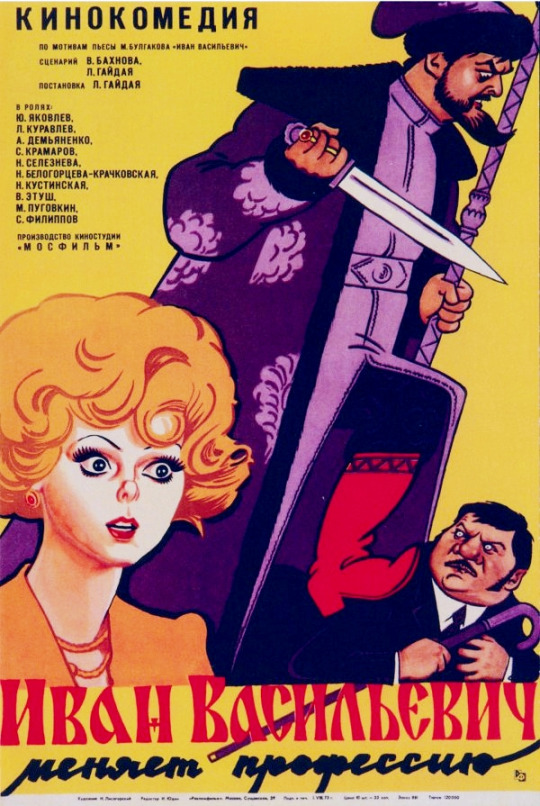
Say what you will about the Soviet Union, but they did know how to make good films back then! Some of my favourite films come from then, so here are my thoughts on one of the best comedies of all time in my opinion. To me its a classic, to many of you out there you probably haven’t even heard of it, so let me introduce you to this untapped foreign gem...
Plot: An ordinary Soviet building manager, living in the 20th century, is extremely similar-looking to a Tsar of All Rus' - Ivan IV the Terrible (1530-1584). He would never have known about this, but one day his neighbour created a time machine.
The film presents a culture clash between Russia in the 16th century and the Soviet Union. This clash comes in the form of the Ivan the Terrible lookalike ending up back in time during his doppelganger’s era, whilst Ivan the Terrible himself ends up in modern day (at the time of the film’s release this would have been 70′s Soviet Russia). As one can imagine, farcical situations emerge from the two being unfamiliar with each other's times and social positions, but the jokes themselves don't seem predictable. On the contrary, the whole thing has a huge, infectious sense of fun about it, from the silly opening credits to one of the character’s breaking of the fourth wall, to Ivan’s Slavonic archaisms and his lookalike’s inability to do the same, to the self-consciously reset ending. It feels like everyone involved decided they gave a damn only about making a fun movie, and the fun is infectious.
This film is popular and remembered amongst Russian audiences because of its many layers. You may enjoy it simply for it’s slapstick comedy, someone else can view it for the great dialogue and language, while yet others can view it as a social commentary. You also get to witness some of the top comedic talents in film of the Soviet era, including Aleksandr Demyanenko, Mikhail Pugovkin, Leonid Kuravlyov, Vladimir Etush, Saveliy Kramarov and the list goes on. To my non-Russian readers (which is probably all of you), these names mean absolutely nothing, but know, that these are some talented folks. An especially huge shout-out to the casting of Yuriy Yakovlev, who totally captures the aggressive and authoritative nature of Ivan the Terrible, but also manages to play a complete opposite weak-type with the lookalike.
It adds up if you know the Russian language and history, but even if you don't you will still find this film funny and charming because there is always something to take away. And yes, for non-Russian viewers wanting to watch this film, yes, it does mean you have to watch a movie with subtitles on, but heck, if South Korean film Parasite can win Best Picture at the Academy Awards, why can’t you give this one a shot?
Overall score: 9/10
A link to the entire film (with English subtitles) on YouTube, should you wish to check it out: https://www.youtube.com/watch?v=m3xVdxDWFWU

#soviet cinema#ivan vasilievich#ivan the terrible#ivan vasilievich back to the future#ivan vasilievich changes profession#ivan vasilievich review#film#movie#movie reviews#film reviews#1973#russia#russian movies#russian films#social commentary#comedy#slapstick#history#science fiction#adventure#leonid gaidai#mikhail bulgakov#ivan vasilievich menyaet professiyu#Иван Васильевич меняет профессию#soviet russia
36 notes
·
View notes
